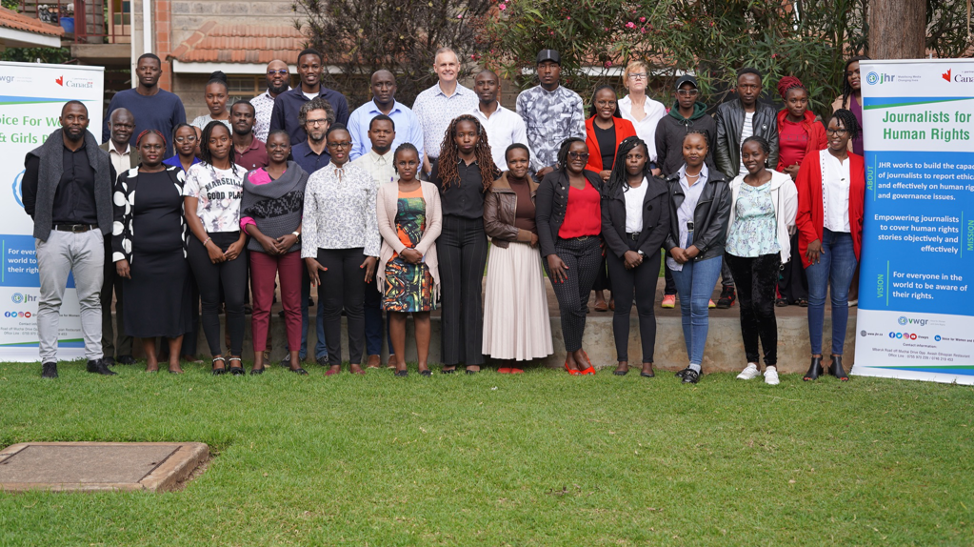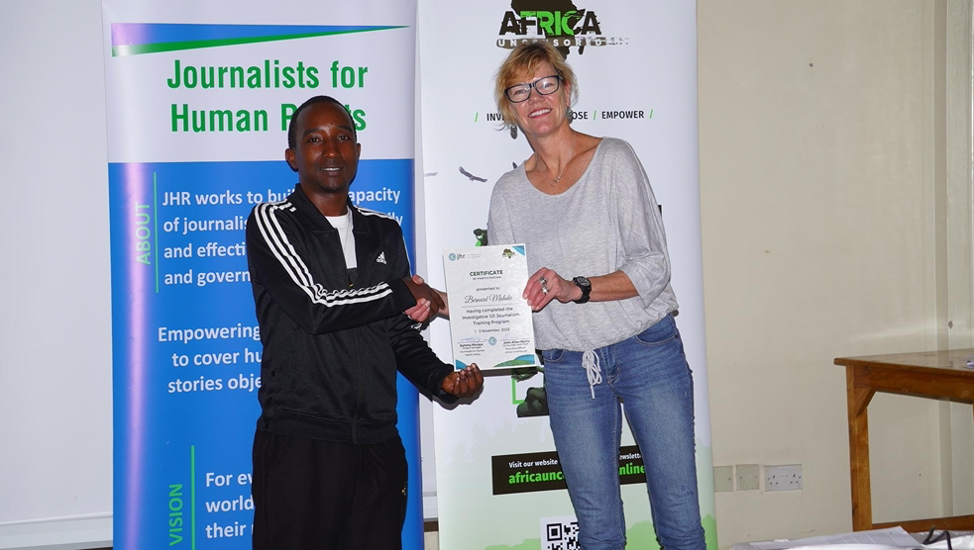Journalists for Human Rights, in collaboration with Africa Uncensored, conducted a three-day investigative journalism workshop for journalists representing different media outlets in Kenya. Taking into consideration the crucial role played by the media in exposing corruption and human rights abuses and holding duty bearers accountable for their actions or inactions in upholding human rights, Journalists express their resolve and determination in telling human rights stories that expose wrongs and hold duty bearers to account. “I learnt that a good investigative story holds specific individuals and bodies accountable and that asking crucial questions to the right people will bring us closer to justice,” says Thomas, one of the journalists who participated in the training.
Meanwhile, while journalists are determined to do their work, one of the most prevalent challenges faced by them is the constant risk of intimidation and the threat of physical violence. Journalists in the room candidly expressed fear in pursuing specific stories, especially those that expose the corruption of people in power, saying they receive threats and have seen other journalists threatened or even seeking asylum for fear for their lives and that of their families.

Investigative Journalism Training participants pose for a photo. © JHRKenya
However, these journalists aren’t oblivious to the challenges they observe; they always have to be cautious and sensible to stay safe while reporting, as well as not to expose their sources to harm. “No story is worth your life. As an investigative journalist, you should alert your colleagues and or family of a potential risk that may occur in the future and safeguard them as well,” says Thomas Dishon, a journalist with Africa Uncensored.
Serfine Achieng’ of Citizen TV emphasized the need for risk assessment as a guide to help one decide whether to do the story still or not. Maryagatha Gichana of Nation Media Group shared similar sentiments. “Assessing risks of an investigative story and planning mitigation and how to pick an investigative story topic that is interesting to my audience.
On her part, Ann Wairimu of People Daily says that while no story is worth someone’s life, “doing a background check, having your facts right and gathering sufficient evidence about your story can help one.”
The three-day intensive training that brought together 26 journalists from mainstream and community media offered a safe space for them to delve into the intricacies of investigative journalism and build a support system that helped journalists to carry out their work without fear of being targeted. “From the data science session particularly, I look to advanced skills in data analysis and visualization, especially for digital investigations,” Nakerario Omari of Africa Uncensored says.

Bernard Maluki receiving his certificate of completion from JHR Trainer Jet Belgraver. © JHRKenya
For Bernard Maluki, who reports for Koch FM, a community radio outlet in the eastern parts of Nairobi, the skills come in handy in amplifying the voices of women and children who are the most affected by the issue of food safety.
“The skills will help me achieve depth in my storytelling and avoid misinformation and legal suits,” Serfine says.
The training ended with JHR providing small grants and technical mentorship to ten journalists to help them apply their skills in producing in-depth stories that investigate challenges of accessing contraceptives for adolescent girls, violation of the rights of older people in Kenya, especially older women, investigating plights of incest survivors and the impact of Kangaroo courts in gender-based violence among others.
JHR’s Voice for Women and Girls’ Rights Program in Kenya empowers media and journalists to report professionally and ethically on human rights issues, particularly issues impacting women’s and girls’ rights.


